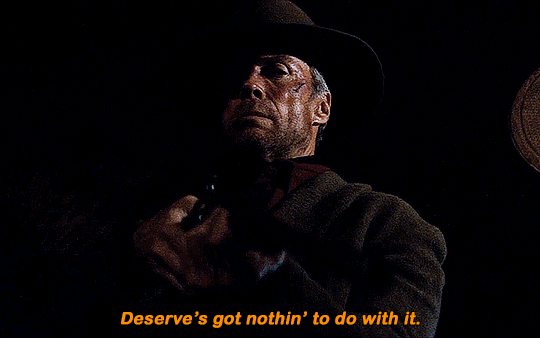What are we owed? Do rulers have a right to rule? Do laborers deserve fair pay? What’s fair? Who decides?
Reading 1
Ez 34:1-11
The word of the Lord came to me: Son of man, prophesy against the shepherds of Israel, in these words prophesy to them to the shepherds: Thus says the Lord GOD: Woe to the shepherds of Israel who have been pasturing themselves! Should not shepherds, rather, pasture sheep? You have fed off their milk, worn their wool, and slaughtered the fatlings, but the sheep you have not pastured. You did not strengthen the weak nor heal the sick nor bind up the injured. You did not bring back the strayed nor seek the lost, but you lorded it over them harshly and brutally. So they were scattered for the lack of a shepherd, and became food for all the wild beasts. My sheep were scattered and wandered over all the mountains and high hills; my sheep were scattered over the whole earth, with no one to look after them or to search for them.
Therefore, shepherds, hear the word of the LORD: As I live, says the Lord GOD, because my sheep have been given over to pillage, and because my sheep have become food for every wild beast, for lack of a shepherd; because my shepherds did not look after my sheep, but pastured themselves and did not pasture my sheep; because of this, shepherds, hear the word of the LORD: Thus says the Lord GOD: I swear I am coming against these shepherds. I will claim my sheep from them and put a stop to their shepherding my sheep so that they may no longer pasture themselves. I will save my sheep, that they may no longer be food for their mouths.
For thus says the Lord GOD: I myself will look after and tend my sheep.
We tend to think of Jesus as “the good shepherd,” but it was actually a title Middle Eastern kings and rulers frequently bestowed on themselves. It makes sense, as it implies both a hierarchy (the king/shepherd leads, the people/sheep follow), but also mutual benefit (the king/shepherd provides protection while the people/sheep provide material goods).
But as God points out, through Ezekiel, this relationship can be abused. The ruling class may only look out for their own interests, without providing anything to the people, even abusing them (like eating the sheep). But the shepherd doesn’t own the flock; he’s merely a caretaker. Such abuses will anger the true master.
Which is exactly what God says here. The cruel rulers will be punished for their misdeeds, and He will take over the shepherding duties Himself, personally.
And thus, we have Jesus, the truly Good Shepherd.
Responsorial Psalm
Ps 23:1-3a, 3b-4, 5, 6
R. (1) The Lord is my shepherd; there is nothing I shall want.
The LORD is my shepherd; I shall not want.
In verdant pastures he gives me repose;
Beside restful waters he leads me;
he refreshes my soul.
R. The Lord is my shepherd; there is nothing I shall want.
He guides me in right paths
for his name’s sake.
Even though I walk in the dark valley
I fear no evil; for you are at my side
With your rod and your staff
that give me courage.
R. The Lord is my shepherd; there is nothing I shall want.
You spread the table before me
in the sight of my foes;
You anoint my head with oil;
my cup overflows.
R. The Lord is my shepherd; there is nothing I shall want.
Only goodness and kindness will follow me
all the days of my life;
And I shall dwell in the house of the LORD
for years to come.
R. The Lord is my shepherd; there is nothing I shall want.
No king (or president or prime minister or what have you) can possibly be as good a shepherd as God. We have to live in the world, and thus we owe a certain amount of respect to our Earthly leaders, but God is our true shepherd.
Alleluia
Heb 4:12
R. Alleluia, alleluia.
The word of God is living and effective,
able to discern the reflections and thoughts of the heart.
R. Alleluia, alleluia.
Part of the verse is skipped over here: “sharper than any two-edged sword, penetrating even between soul and spirit, joints and marrow.” The point is that the Jesus, the Word, know the difference between idle thoughts and true motivations.
Gospel
Mt 20:1-16
Jesus told his disciples this parable: "The Kingdom of heaven is like a landowner who went out at dawn to hire laborers for his vineyard. After agreeing with them for the usual daily wage, he sent them into his vineyard. Going out about nine o'clock, he saw others standing idle in the marketplace, and he said to them, 'You too go into my vineyard, and I will give you what is just.' So they went off. And he went out again around noon, and around three o'clock, and did likewise. Going out about five o'clock, he found others standing around, and said to them, 'Why do you stand here idle all day?' They answered, 'Because no one has hired us.' He said to them, 'You too go into my vineyard.' When it was evening the owner of the vineyard said to his foreman, 'Summon the laborers and give them their pay, beginning with the last and ending with the first.'
When those who had started about five o'clock came, each received the usual daily wage. So when the first came, they thought that they would receive more, but each of them also got the usual wage. And on receiving it they grumbled against the landowner, saying, 'These last ones worked only one hour, and you have made them equal to us, who bore the day's burden and the heat.'
He said to one of them in reply, 'My friend, I am not cheating you. Did you not agree with me for the usual daily wage? Take what is yours and go. What if I wish to give this last one the same as you? Or am I not free to do as I wish with my own money? Are you envious because I am generous?' Thus, the last will be first, and the first will be last."
God’s justice is not Man’s justice, because He’s working on a different scale than we are. Sure, in the parable, the morning laborers worked longer than the evening ones, but that part of the metaphor doesn’t carry over to the real world.
We can never work as hard for the Kingdom as Jesus has. Through Him, all things were made; we owe everything to Him. So, the difference between us and our neighbor isn’t the difference between morning and night, from God’s perspective.
Imagine you could put “good” on an abstract scale. Say, you’re a 9 out of 10, but your neighbor is a 6. God is INFINITY. The difference is negligible.
God’s grace is unimaginable, and none of us “deserve” it. We can’t think of it as being paid a just wage, like workers in the field. It just doesn’t make sense.
Or, as Clint Eastwood put it…




